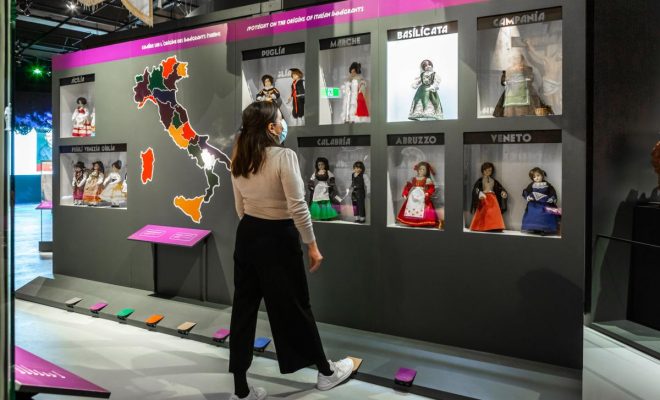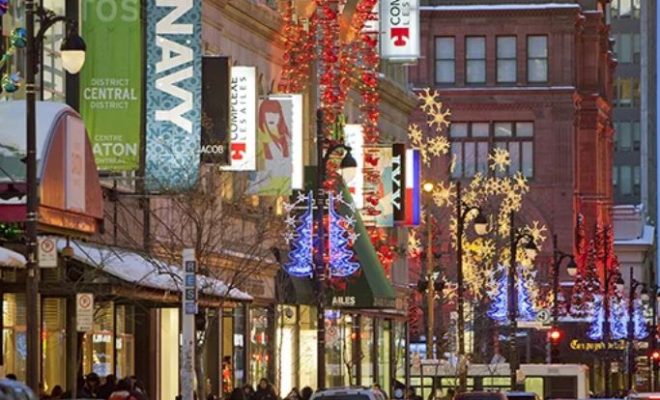Italian Montreal: an exhibit in spaces

If you think you knew Italian Montreal, think again. A new exhibit at the Pointe-à-Callière Montreal Museum of Archaeology and History museum takes visitors on a journey through the story of one of Montreal’s most dynamic and enduring communities, in ways that bring daily life alive across generations, and introduces facts and links that many are likely unfamiliar with.
Some 280,000 Montrealers identify as having Italian roots, says exhibit project manager Samuel Moreau, who told The Suburban that the exhibit had been visited for quite some time, pre-pandemic. Now that the museum is open to visitors, up to 100 people an hour, it’s the perfect opportunity to take a tour of Italian Montreal and through time.
With the community’s active participation – through the loan of items, sharing of moving family archives and keepsakes, and a generous and dynamic contribution to the project’s development– Pointe-à-Callière is presenting this unique exhibition that traces the journey of Italian Montrealers from the early 20th century when they arrived in Montreal in great masses to the present day.
The exhibit takes on new resonance, given that it is not displayed in a local exhibition hall in the heart of any Italian neighbourhoods, but in one of Montreal’s most treasured locales and accessible to all visitors, Montrealers and tourists alike.
The story itself is told in five iconic spaces, spanning from the unification of Italy and mass migration of Italians throughout Europe and America, to the flourishing of local community associations in the city and Italian Montrealers’ indelible footprints in the city’s business, cultural and social life.
For example, many Montrealers will be hard pressed to know that Italian workers were recruited by major Canadian companies to work on various projects like tramways, railways or in the construction sector a century ago, nor do they likely know of Italian implication in trade unionism, Italian women in various feminist movements over the generations, or the role of local cafés as cornerstones of the involvement in these social movements.









